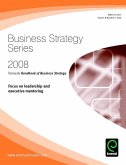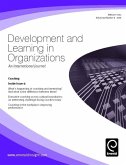The first two articles of this e-book and both steeped in coaching practice. Bill Critchley offers his personal rationale for the relational approach, bringing together ideas from developmental psychology, organisation theory and neurobiology amongst others. Then Andrew Day focuses particularly on a psychoanalytic view of repeating relational dynamics as they emerge and are co-created in the (transferential) coaching relationship. In an article that goes under the surface of collaborative relationships, Simon Cavicchia shines a light on a prevailing form of anxiety in work and coaching, stemming from the felt pressure to be superhuman. He explores how this pressure to perform can lead to feelings of shame which threaten to engulf coaches' competence. Max Visser and Elaine Robinson analyse specific approaches within a general relational framework. Visser demonstrates how the modern behavioural systems approach can be useful for relational coaches. He illustrates its use to reflect on the coaching relationship with the use of a coaching vignette. Robinson demonstrates how narrative techniques, inspired by metaphor, use of language and story-telling enable sense-making and interpretation within the coaching relationship and shared reflective practice. The final article focuses specifically on the topic of client-coach matching and its impact on coaching outcome. Lisa Boyce, Jeffrey Jackson and Laura Neal studied 74 coach-client relationships in the context of a U.S. military academy, where clients were cadets and coaches were senior military leaders who had had some training in executive coaching. Their findings confirm the importance of the coaching relationship for effectiveness and shed new light on the matching process.
Dieser Download kann aus rechtlichen Gründen nur mit Rechnungsadresse in A, B, BG, CY, CZ, D, DK, EW, E, FIN, F, GR, HR, H, IRL, I, LT, L, LR, M, NL, PL, P, R, S, SLO, SK ausgeliefert werden.









